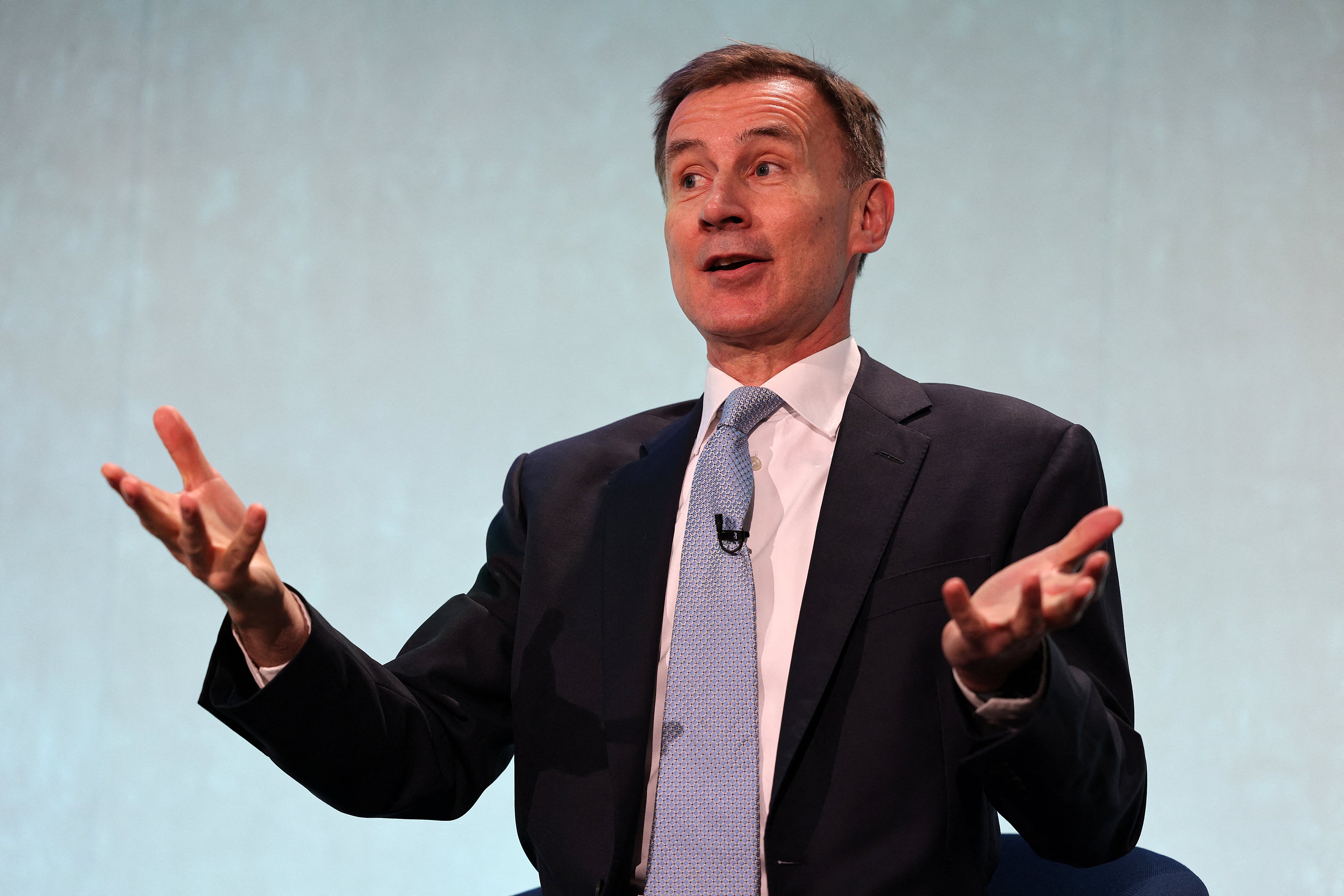Jeremy Hunt strikes post-Brexit banking deal with Switzerland
Treasury claims new finance deal only possible because of Brexit
Your support helps us to tell the story
From reproductive rights to climate change to Big Tech, The Independent is on the ground when the story is developing. Whether it's investigating the financials of Elon Musk's pro-Trump PAC or producing our latest documentary, 'The A Word', which shines a light on the American women fighting for reproductive rights, we know how important it is to parse out the facts from the messaging.
At such a critical moment in US history, we need reporters on the ground. Your donation allows us to keep sending journalists to speak to both sides of the story.
The Independent is trusted by Americans across the entire political spectrum. And unlike many other quality news outlets, we choose not to lock Americans out of our reporting and analysis with paywalls. We believe quality journalism should be available to everyone, paid for by those who can afford it.
Your support makes all the difference.Jeremy Hunt has struck a post-Brexit banking deal with Switzerland aimed at easing UK finance firms’ access to the country’s market and vice versa.
The chancellor signed the agreement with his Swiss counterpart based on mutual recognition of each other’s financial laws and regulations.
The Treasury is hoping for a major boost to the City of London from the deal with Switzerland, which is not an EU or EEA member – but is part of the single market.
Mr Hunt hailed Brexit for allowing the UK to strike new deals with major finance hubs, despite Britain has lost out on access to the EU’s single market.
The chancellor claimed the pact “builds on the UK and Switzerland’s strengths as two of the world’s largest financial centres”. He said it would serve “as a blueprint for future agreements with other key trading partners” after Brexit.
When Britain left the bloc it risked losing the benefits of its former trading arrangements with Switzerland, which were based on EU rules despite it not being a member state.
But the Treasury said the Bern Financial Services Agreement was “only possible due to new freedoms granted to the UK following its exit from the EU”. It added that the two nations had a “shared belief in the value of open and resilient financial markets”.

Rishi Sunak’s government is also currently negotiating an enhanced, post-Brexit free trade agreement with Switzerland aimed at boosting economic ties.
Business secretary Kemi Badenoch said the finance deal would help British banks “access this lucrative market and grow UK-Swiss trade in services”.
She added: “This deal complements the work we’re doing with Switzerland to agree a new, modernised free trade agreement and will help the UK reach our goal to export a trillion pounds of goods and services a year by 2030.”

Labour MP Paul Blomfield, co-convenor of the cross-party UK Trade and Business Commission, said the agreement will be “well received across the City” and is “a welcome acknowledgement” from the government that its must provide regulatory certainty.
But the senior backbencher warned that there was much to do in breaking down wider trade barriers for British firms still struggling to cope with Brexit red tape.
Mr Blomfield added: “The EU remains the largest overseas market for most British businesses and protecting them demands similar arrangements of beneficial regulatory alignment, which will break down barriers, reduce costs and unlock the huge potential of the UK economy.”
It come as the British Chambers of Commerce (BCC) urged Mr Sunak and Mr Hunt to consider a range of side and supplementary deals with the EU to ease ongoing trade friction.
Almost two-thirds of UK exporters say selling to the EU has become even harder in the past year, according to the BCC’s latest Brexit report.
The leading business group called for a series of agreements with Brussels – on carbon taxes, VAT arrangements and food checks – to soften the impact of Boris Johnson’s trade deal.

Join our commenting forum
Join thought-provoking conversations, follow other Independent readers and see their replies
Comments